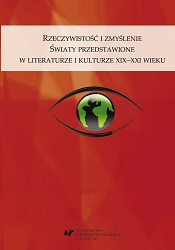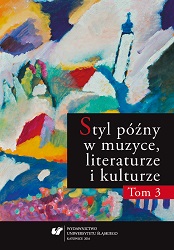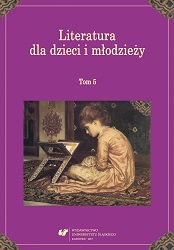
Jednostka niepełnosprawna a społeczeństwo w kontekście problemu inności w literaturze XIX i XX wieku
The article endeavours to characterise the means of creation of the world and thefigure of a person with a disability in Polish and foreign texts from the period of YoungPoland to the contemporary times. Chosen literary works representing various tendenciesand genres from, among others, children’s literature, non‑fiction, but also fairy tales, form the ground for the author’s observations. The article reflects upon the means of hiding disabled people behind certain metaphors, as these people evoke extreme emotions, from fear to full acceptance. It focuses on the ways of representing the relations between a person and a society, oscillating around hostility and cooperation, in the context of otherness. The author also contemplates upon the notions of norm and normality, the issues connected to freedom, self‑determination, and having one’s own place in the world. Finally, remarks on the ways of domesticating otherness in literature are provided.
More...

